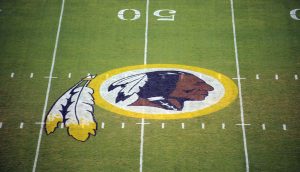 A decade or two ago, high schools, universities, and even professional sports franchises fell under scrutiny for adopting mascots of Native Americans, representing the diverse classifications as violent, warring, or savage as a means to propel school spirit and athletic activity. This may have included “mascots” called: Braves, Seminoles, Indians, Redskins, etc.
A decade or two ago, high schools, universities, and even professional sports franchises fell under scrutiny for adopting mascots of Native Americans, representing the diverse classifications as violent, warring, or savage as a means to propel school spirit and athletic activity. This may have included “mascots” called: Braves, Seminoles, Indians, Redskins, etc.
At the time, the argument was that these names are offensive and minimizing, reducing an entire race of people, sometimes, to a poor media representation of a vast history and culture far more complex. As an argument, this makes a lot of sense, and it looks like advocates for a change have been somewhat effective.
In May of 2014, for example, Washington Redskins owner Daniel Snyder made the now-famous statement: “We’ll never change [the team’s name]. It’s that simple. NEVER—you can use caps.” And, perhaps in direct response to this, letters have been sent, petitions have been filed, and objectives have been voiced over the entirety of the past two years, resulting in the United States Patent Office canceling the NFL franchise’s trademark registration, saying that the “Redskins” term is, indeed, derogatory.
In fact, the NFL Franchisee says, “The Washington Redskins team, our fans and community have always believed our name represents honor, respect, and pride [and] today’s Washington Post polling shows Native Americans agree. We are gratified by this overwhelming support from the Native American community and the team will proudly carry the Redskins name.”
So, if the evidence suggests that a vast majority of people have no problem with the current situation, what, in fact, is the problem?
Well, Judy Ann Joyner, 64, argues, “It’s 100 people okay with the situation, and one person has a problem with it, and all of a sudden everyone has to conform.” Ms Joyner has a grandmother who was part-Shawnee and part-Wyandot, and she goes on to say, “You’ll find people who don’t like puppies and kittens and Santa Claus. It doesn’t mean we’re going to wipe them off the face of the earth.”
